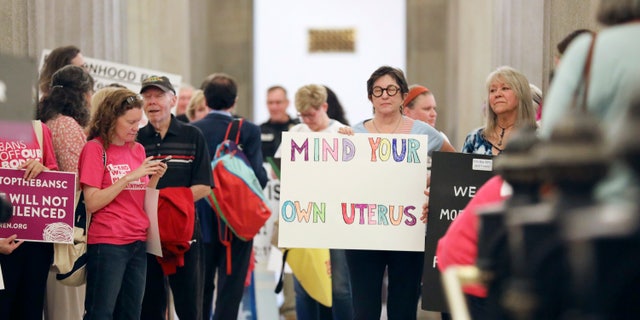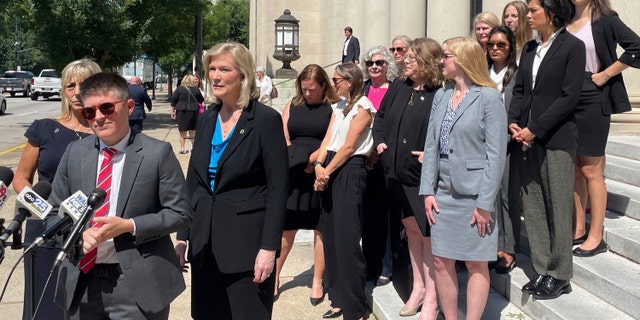South Carolina’s all-male Supreme Court on Wednesday upheld an abortion ban, primarily on procedures performed after about six weeks of pregnancy, after the detection of a fetal heartbeat.
The court ruled 4-1, with Chief Justice Donald Beatty as the lone dissenter. The ban takes effect immediately. Months earlier, the court struck down a similar ban that the Republican-led Legislature passed in 2021.
Justice John Kittredge, in writing for the majority, acknowledged that the 2023 law also infringes on “a woman’s right of privacy and bodily autonomy,” but said the state Legislature reasonably determined this time around that those interests don’t outweigh “the interest of the unborn child to live.”
FEDERAL APPEALS COURT RESTRICTS ACCESS TO ABORTION PILL MIFEPRISTONE, DRUG REMAINS AVAILABLE
The exterior of the South Carolina Supreme Court building in Columbia. The state’s Supreme Court reversed course on abortion on Wednesday, upholding a ban on most such procedures after about six weeks of pregnancy. (AP)
“As a Court, unless we can say that the balance struck by the Legislature was unreasonable as a matter of law, we must uphold the Act,” Kittredge wrote.
Beatty wrote that definitions for the terms including “fetal heartbeat” and “conception” did not provide enough clarity on when the ban should begin.
The law was signed this year by Republican Gov. Henry McMaster. In a statement, McMaster celebrated Wednesday’s ruling.

Protesters against South Carolina’s stricter ban on abortion stand in the Statehouse lobby on Tuesday in Columbia, S.C. (AP)
“The Supreme Court’s ruling marks a historic moment in our state’s history and is the culmination of years of hard work and determination by so many in our state to ensure that the sanctity of life is protected,” McMaster said.
“With this victory, we protect the lives of countless unborn children and reaffirm South Carolina’s place as one of the most pro-life states in America.”
The law was challenged by abortion providers, including Planned Parenthood South Atlantic.

The legal team for Planned Parenthood South Atlantic speaks Tuesday outside the South Carolina Supreme Court building in Columbia, S.C. (AP)
CLICK HERE TO GET THE FOX NEWS APP
The clinic in Columbia had served only a “handful” of the roughly 30 patients scheduled for abortions Wednesday when the ruling came down, according to Dr. Katherine Farris, the group’s chief medical officer. The center — one of three clinics in the state — has paused abortions while officials work to understand the ruling’s implications.
Farris added that colleagues working at South Carolina hospitals reported they also turned away patients this morning.
The Associated Press contributed to this report.